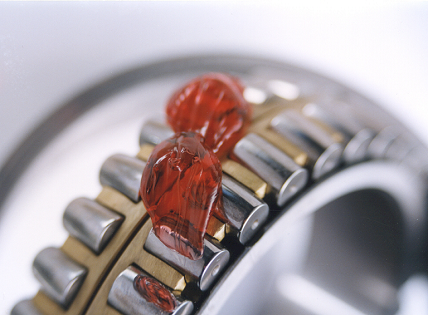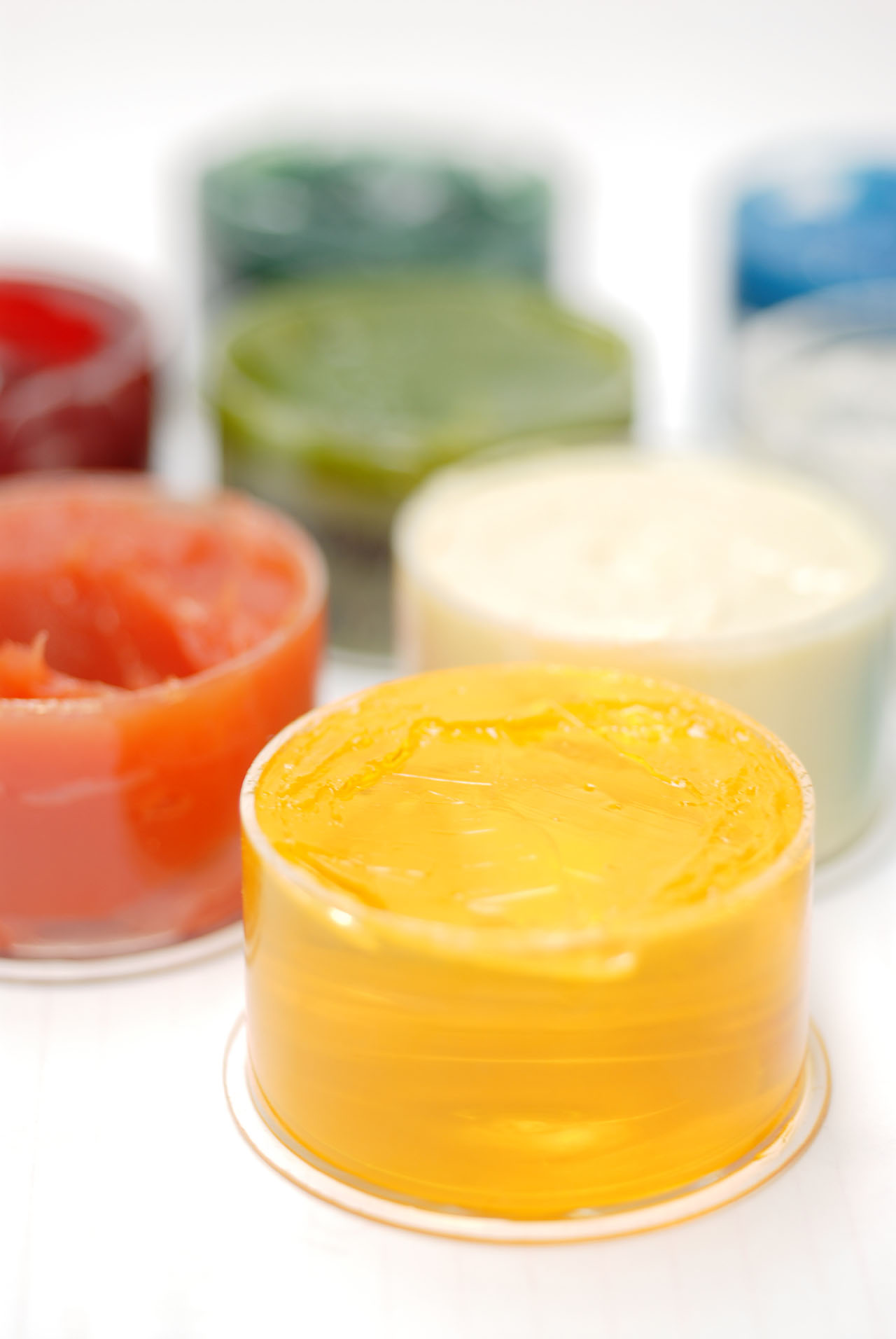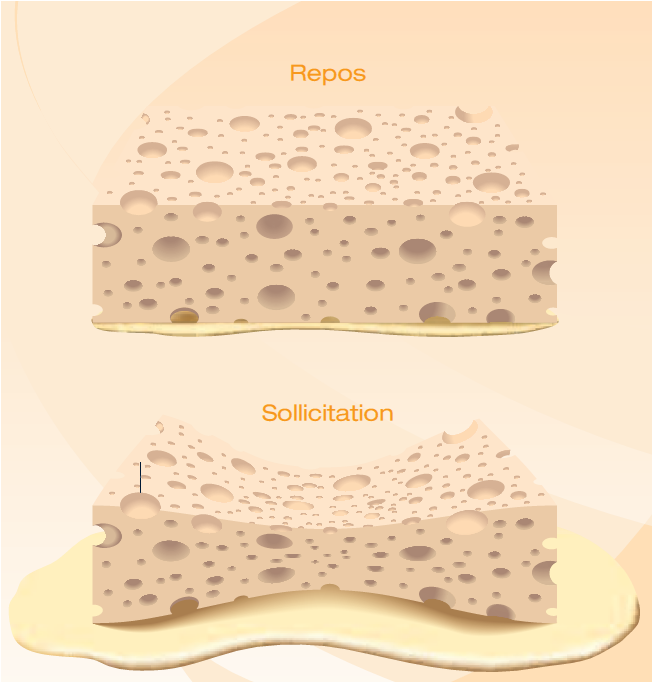Did you know ?
Thickening and soap in a grease
Behind the name "lubricating grease" is a mixture of three families of components: a thickening agent, base oils and performance additives.
There are two types of thickeners: soaps and gels.
How soaps work
For soaps, the most classic representation is that of a sponge containing the elements (oils, liquid and/or solid additives) which will serve to lubricate the contact (bearing ball, tooth gear, etc).
For example, in a roller bearing, the rolling element, such as a roller, presses the grease which releases the oil, thus avoiding any metal to metal contact and facilitating the bearing. At rest, the grease partially recovers its oil. For the same type of soap, a grease with more soap will tend to release its oil less. Depending on the application (long lifespan), this phenomenon is expected, given that a too little release (referred to as "bleed") can cause a poor lubrication of the contact. The right amount is everything!
Like a sponge under the action of scissors, the roller gradually shears or breaks the soap. The grease then loses consistency, no longer holds the oil as well and eventually escapes from the bearing. It is then necessary to re-grease in order to replace the grease
How polyureas work
In the case of polyurea gels, the sponge example cannot be used.
Take the frequent case of a ball bearing: The polyurea thickener located in the area underneath the ball is sheared almost instantaneously upon its passage. So it becomes liquid in this area (like a lubricating oil). When the bearing stops, unlike soaps (irreversible shearing), the polyurea grease almost completely regains its original consistency. Grease outside this area is not sheared, and retains its consistency. This enables it to act selectively depending on the stress area.
- Reduction of vibrations
In terms of vibration and friction in the bearing, oil lubrication is preferable to grease lubrication. The polyurea grease resembles more closely to a lubrication with oil. Therefore it decreases vibrations when applied to electric motors or pumps.
- Reduced temperatures and energy savings
When they are recommended in the right place, friction is reduced (thus the engine’s operating temperature), thus reducing energy consumption and increasing the device’s lifespan. These greases are indicated in the case of bearings rotating at fairly high speeds (as a reference, 200,000 <nDm speed factor <500,000) and for bearings preferably with balls sufficiently prestressed.

Advantages of greases

- Simplified lubrication: does not leak
- Re-lubrication is needed less often
- Thicker lubricating film, adhesion
- Protects against contamination due to waterproofing
- Supports extreme operating conditions
- Wide operating temperature range
- Guaranteed lubrication even in case of negligence



